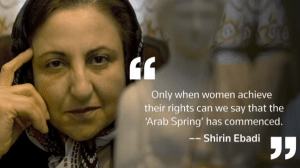Renowned Caribbean-American poet, feminist, and writer Audre Lorde, once said, “your silence will not protect you.” Having worked with survivors of gender-based violence, I unequivocally reaffirm that statement. Silence never has, nor will it ever, protect victims. In fact silence and the ensuing stigma around sexual and gender-based violence (SGBV) needs to be perpetually challenged, discussed and systematically dismantled. It’s time we see silence for what it is – a powerful weapon used to subjugate women, girls, and minority groups at large. So when survivors of violence agree to speak up about their experiences, we must acknowledge and honor their choices to combat isolation, achieve personal emancipation, and cast off the unrelenting yoke of victimhood.

WITNESS has long played an integral role in the fight for women’s rights, promoting these rights by producing relevant tools and resources to amplify the struggle and support practitioners regionally and globally.
In keeping with this commitment, we are happy to announce the release of the guide Conducting Safe, Effective and Ethical Interviews with Interviewing Survivors of Sexual and Gender-Based Violence in Arabic. In addition to Arabic, the guide is available in English, French, Spanish and Portuguese.
In the Middle East and North Africa, women and girls often fall prey to an enduring cycle of violence and subjugation. Faced with a system of enduring political volatility, patriarchal structures, persistent socio-economic disparity, and autocratic leaders who have shown little interest in advancing gender rights, women find themselves ensnared in systems that afford them little protection and very little political recourse. Despite the powerful and pivotal role women played in the 2011 Arab uprisings, their rights continue to regress on multiple fronts.

WITNESS is therefore committed to ending SGBV by exploring various approaches and learning from best practices to help national and regional organizations and networks address the issue through the use of video.
With over 20 years of experience in the field of video advocacy, WITNESS’ guide outlines best practices and ethical considerations for filmmakers, activists or advocacy groups filming interviews with survivors of sexual and gender-based violence. In addition to the written guide, we have also produced a series of six videos that provide additional tips and information on conducting interviews with survivors of SGBV.
The tips are organized into stages of preparation for the interview, during the interview, and after the interview. Although we are aware that interviewing survivors of violence is first and foremost a human process, we are also aware that without the right guidelines we risk re-victimization. For example, we guide interviewers to consider the nuances and complexities that might unfold when survivors of violence share traumatic experiences.
Our SGBV guide contributes to the already existing social justice and human rights movements that know too well that women survivors of violence should not be treated as a homogenous group, and instead, focus and build on their unique and individual stories to forge bottom-up and inclusive solutions.
I conclude by quoting Audre Lorde once again, who powerfully said, “If I didn’t define myself for myself, I would be crunched into other people’s fantasies for me and eaten alive.” With this guide we empower NGOs, filmmakers, journalists, and activists to carve out a space for women to tell their own stories, fight mainstream narratives, and speak their own truths.The voices and stories of survivors remain the most authentic way to stir up public consciousness on this issue.
Featured image: Tunisian protestors, via Reuters